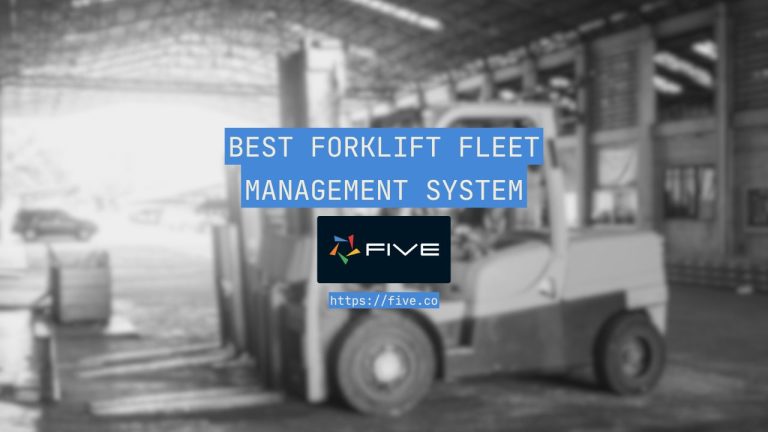Legacy to Cloud Migration: Complete Guide
Breakdown of Legacy to Cloud Migration
Let’s be honest – that legacy system might still run, but is it really serving your business? If you’re starting sentences with “Our old system works, but…” you’re in good company.
Countless organizations find themselves tethered to aging applications that barely keep pace with modern business demands.
Whether it’s your CRM from the early 2000s or a custom inventory system that only your oldest employee truly understands, these legacy systems often quietly hold back your organization’s potential.
If you’re running legacy systems, the decision to move to the cloud isn’t just about following a trend – it’s about giving your business the agility and competitive edge.
Why Cloud Migration is Important?
Traditional IT infrastructure has always presented a fundamental business challenge. It forces organizations to invest heavily in peak capacity that, like a highway during off-peak hours, sits largely unused most of the time.
You’re paying for servers powerful enough to handle your busiest days, even though that level of capacity might only be needed a few times a year. This approach isn’t just inefficient; it’s a significant drain on your capital resources.
Cloud computing fundamentally transforms this dated model, introducing a level of financial flexibility previously impossible with traditional infrastructure. Instead of massive upfront investments, you pay only for the resources you actually use.
Your infrastructure can scale instantly during peak periods – whether it’s end-of-month processing or seasonal spikes in demand – without requiring any capital investment.
The financial benefits extend far beyond just flexible scaling. By moving to the cloud, you eliminate the costly cycle of hardware refreshes and ongoing maintenance that comes with on-premises infrastructure.
No more planning for server replacements every few years or dealing with the headache of maintaining aging equipment. Perhaps most significantly, this shift converts traditionally unpredictable capital expenses into steady, predictable operational costs – giving you better control over your IT budget and more accurate financial forecasting.
How Cloud Solutions Change Business Operations?
Cloud solutions have emerged as the cornerstone of a new-age operational model, offering capabilities that go far beyond simple remote access.
Think about the freedom of accessing any business application, from any device, anywhere in the world. Your team is no longer tethered to office computers or limited by physical location. Whether they’re working from home, visiting clients, or traveling internationally, they have secure, instant access to everything they need to perform at their best.
This level of flexibility wasn’t just convenient during the pandemic – it’s become an expectation for modern workers and businesses.
Real-time collaboration has taken on new meaning in the cloud era. Teams can work together seamlessly across locations, time zones, and departments. Documents are always up-to-date, changes are tracked automatically, and multiple team members can contribute simultaneously without version control nightmares.
Perhaps most importantly, cloud solutions enable businesses to evolve and adapt without the traditional constraints of physical infrastructure. New capabilities can be deployed rapidly across the entire organization without touching a single server.
Whether it’s rolling out new software features, implementing security updates, or scaling resources to meet demand, everything can be managed centrally and deployed instantly to every user, wherever they are.
How to Migrate From Legacy to Cloud?
Before diving into cloud migration, it’s crucial to gain a clear picture of your current landscape. Every legacy system tells a story – of business processes that evolved over time, of critical data that drives your operations, and of workflows your team relies on daily. At Five, we begin by mapping this digital terrain, identifying what’s working well, what needs improvement, and where the greatest opportunities lie.
The traditional approach to migrating legacy systems to the cloud often involved a complete overhaul, essentially rebuilding the entire system from scratch. This “big bang” method frequently led to budget overruns, missed deadlines, and significant business disruption. At Five, we’ve developed a smarter, more practical approach to cloud migration.
At Five, we specialize in migrating legacy systems to the cloud with a focus on creating sustainable, cloud-native solutions. Our team understands the unique challenges of transitioning from outdated infrastructure to modern, scalable environments.
Whether it’s navigating complex data structures, integrating with existing workflows, or dealing with outdated technologies, our team has the expertise to guide you through every step.
At Five, we bring extensive experience in enterprise cloud migration. Our cloud architects understand the complexities of moving from legacy applications to cloud environments, and we’ve successfully guided numerous organizations through this process. Whether you’re dealing with complex legacy systems, data security concerns, or integration challenges, our team provides the expertise to ensure your cloud migration succeeds.
Key Questions About Legacy to Cloud Migration
How Disruptive Will the Migration Be?
One of the most common concerns organizations face when considering cloud migration is the potential for business disruption. It’s natural to worry about system downtime and its impact on daily operations.
However, modern migration approaches have evolved to minimize these risks significantly. At Five, we’ve developed a strategic methodology that ensures business continuity throughout the migration process.
This includes carefully phased migrations. Comprehensive testing and clear rollback plans for every step provide additional peace of mind, ensuring your business operations continue smoothly throughout the transition.
What About Our Data Security?
When it comes to moving sensitive business data to the cloud, security concerns often top the list of considerations. However, modern cloud platforms actually offer superior security features compared to most on-premises solutions.
Today’s cloud environments provide enterprise-grade encryption both at rest and in transit, sophisticated threat detection and prevention systems, and automatic security updates.
Five hosts applications on our managed infrastructure with Microsoft Azure, ensuring backups, data retention, and continuous availability for your peace of mind.
How Long Will the Migration Take?
Understanding how long a cloud migration will take is crucial for business planning. While each migration is unique, several key factors influence the timeline: the size and complexity of existing systems, the volume of data to be migrated, the number of system integrations and dependencies, and regulatory compliance requirements.
At Five, we help you assess these factors early in the process, creating realistic timelines that account for everything.
What Are the True Costs?
Financial planning for cloud migration requires a comprehensive view of both immediate and long-term costs.
This includes initial migration expenses, ongoing operational costs, training and support requirements, and potential infrastructure savings.
We help you develop detailed ROI calculations that consider all these factors, providing a clear picture of the financial implications and benefits.
Contact us to discuss how we can address your specific legacy to cloud migration concerns and develop a strategy that ensures a smooth, successful transition to the cloud.


